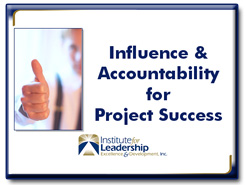
Tuesday, December 23













|
Home > Leadership in the Real World Blog | |
|
Notes, links, and inspiration about topics related to personal and leadership development. |
|
|
| |
Distraction Turns To TragedyMotorcyclist Fatally Struck by Car; Cops Say Other Driver Painting NailsThat was the headline in our local paper Sunday morning after a tragic accident the day before. The outrage continues to pour in, especially when it appears the nail-painting driver will only be charged with "failure to reduce speed to avoid an accident." My guess is there will be additional fines and litigation against the offending driver. Yet I suppose the most painful sentence for her will be living with the result of her lack of attention. One comment on a discussion board mentioned the driver is a nurse: someone who helps save lives. In a split second, for no good reason, she ended one. The discussion boards on local news sites are filled with "lock her up for life!" sort of judgments. My first reaction to the tragedy was similar: "What a loser! Painting her nails?" And yet I couldn't help but be reminded of one of Jesus' comments about someone who had obviously made a mistake as well: "If any one of you is without sin, let him be the first to throw a stone at her." How often will I text someone (while I'm driving) that I'm running a couple minutes late? Or scroll through a list of names to make a call? Or twirl the selector on my iPod to find the podcast I want to listen to? Or eat? Or review some notes before a meeting? Or shave? Or [fill in the blank]? The answer: too often. I've posted about attention and distraction a number of times and discussed it on my podcast with the author of The Myth of Multitasking. We are a culture of distracted multitaskers. The data clearly indicate it's not just the phone or iPod or nail polishing that impairs our driving. Reaching across the car to grab a bottle of water can make the difference between stopping now or a half-second too late. I understand that many of us fancy ourselves as great multitaskers, and certainly some seem better than others. But brain science increasingly makes it clear that we are fooling ourselves: "To put it bluntly, research shows that we can't multitask. We are biologically incapable of processing attention-rich inputs simultaneously," says Dr. John Medina, author of Brain Rules. He goes on: "Cell-phone talkers are a half-second slower to hit the brakes in emergencies, slower to return to normal speed after an emergency, and more wild in their 'following distance' behind the vehicle in front of them. In a half-second, a driver going 70 mph travels 51 feet. Given that 80% of crashes happen within three seconds of some kind of driver distraction, increasing your amount of task-switching increases your risk of an accident. More than 50% of the visual cues spotted by attentive drivers are missed by cell-phone talkers. Not surprisingly, they get in more wrecks than anyone except very drunk drivers." This isn't just an issue on the road. People are distracted by e-mail in meetings. Managers try to draft something on their computer while having a one-on-one with a staff member. Noises from a cubicle next door make it difficult to focus on your work. Thankfully the results are not typically as tragic as someone dying, but there is a toll nonetheless.Our local paper's editorial board had a good response this morning: "Don't _____ and Drive" That's good advice for the road. And it can be a good reminder for us all to manage our distractions more aggressively as we go through our day today. P.S. As I was finishing this post up this morning, my 12-year old son wanted to talk. I found myself bouncing between the conversation and this post. How ironic. I had to turn away from the keyboard and focus on him. Otherwise the likelihood of him feeling I wasn't listening (and a typo showing up in this post) would have dramatically risen. Here's to less distractions in your day today! Labels: denial, mistakes, multitasking, podcast, reality, time management
| |
The Illusion of KnowledgeSo what are you reading? I just started Edward Gibbon’s Decline and Fall of the Roman Empire, which is certainly a departure from the business books that typically keep me busy. I had to present a paper on Gibbon's classic back in high school and I’ve been wanting to re-read it. With trips to Europe and Africa in the months ahead, the timing is perfect for a book nearly 3 inches thick!Daniel Boorstin’s introduction had an interesting quote: “For Gibbon, while human nature is anything but unintelligible, it remains only partly explicable. For him the menace to understanding was not so much ignorance as the illusion of knowledge.” In my business of speaking and executive coaching I have the opportunity to help leaders become more productive by learning rich theories and models that explain personality styles and other aspects of human nature. Yet upon reflection, I’m probably less immune than I want to admit to the illusion of knowledge—that I can explain it all because “they’re an ENTJ” or “a High D”, when in fact I’m over-simplifying and perhaps being held back from greater understanding because of it. I can too easily jump to conclusions about people. I can put people in a style box and not recognize when they're trying to be more versatile. I can try to apply simple solutions to complex problems. What about you? Are you being held back from deeper understanding on something because you hold up the illusion of knowledge? How willing are you to take a fresh look at long held convictions? When was the last time you admitted, "I'm not really sure. I will look into that more." As we discuss in our keynote "Lipstick on a Pig: How Illusion Leads to Crisis in Real World Projects", reality has this annoying way of always winning. Here's to all of us gaining greater understanding by being more willing to combat the illusion of knowledge. Labels: illusion, Lipstick on a Pig, personality styles, reality, uncertainty
| |
Leadership Lessons from William A. OsborneA recent Crain's Chicago Business "Talking Business" episode included an interview with the Chairman and CEO of Northern Trust, Bill Osborne. I've had the distinct pleasure of facilitating training & offsite meetings for the Northern, as well as some executive coaching. You can often learn a lot about a leader by what people in their organization say about him or her. Here are some things I consistently hear people say about Bill:
Here are some notes from the brief video:
 Labels: accountability, executives, illusion, leadership, learning, listening, reality
| |
Oversimplifying the issue“Idealism increases in direct proportion to one's distance from the problem.”John Galsworthy, English novelist and playwright A customer recently shared this quote with me based on a topic we had covered prior to a break. I had to share it with you… Have you seen Galsworthy’s wisdom in action? We are a culture that loves the sound bite. Wrap the concept up in a 10 second blip… that’ll do just fine. From a cultural standpoint, think about how we oversimplify issues. For example, you’re either a liberal or a conservative. You’re either for saving the lives of millions of people through embryonic stem cell research or you’re a religious whacko. It would appear there’s no middle ground or shades of grey.  In business, think of how many times training classes or articles state we need to “do the right thing”, “put the right people on it”, “ask the right questions”. A recent article recommended that prospective leaders make sure they “do the right thing at the right time”. Uh, thanks for the insight. In business, think of how many times training classes or articles state we need to “do the right thing”, “put the right people on it”, “ask the right questions”. A recent article recommended that prospective leaders make sure they “do the right thing at the right time”. Uh, thanks for the insight.At 30,000 feet, everything looks pretty simple. As Galsworthy states, “Idealism increases in direct proportion to one’s distance from the problem.” Think about projects that, once you dig into the requirements, are not as simple as they might have seemed on the white board with the sales & marketing folks. How about an employee who is struggling with his performance but has some real world challenges going on in his personal life? Or maybe you can think of processes that are a good idea but require changes to the culture to allow for acceptance? Start digging into issues a little deeper and we’ll often find there’s less black and white and more shades of grey. It becomes more apparent that answers aren’t quite as easy as we may have thought. For example, the whole stem cell debate has caught my interest. Did you know that while the politcally active mud wrestle about funding of stem cell research, adult stem cells are being used to treat over 67 diseases... today? And there’s promising research (here’s one example) that may make embryonic stem cell usage irrelevant some day. In business, the reality is some things are black-and-white. There are generally accepted accounting principles that need to be followed. It’s not all shades of grey. Also, we need to simplify at times. In fact, I’ve found many an aspiring leader who failed to influence a situation because they presented too much detail to their executives. They should have provided more headline, less encyclopedia. We can often win when we do a good job of simplifying. But oversimplifying can be deadly. This blog entry is a call for you to be wary of oversimplifying. Suggestions:
Labels: culture, idealism, illusion, planning, project management, reality, requirements
| |
Mind Over WaterIn a recent newsletter I shared the story of my five year old daughter getting victory over her fear of swimming. If you haven't read it yet, click here to take two minutes to read the story. Then return here to learn more. So, what is your story? What made the difference?  Chances are you have stories yet to be told. I’m guessing there are some areas that haven’t clicked yet for you—that are holding you back, that still have you bound by the chains of “Well, I’m just not very good at that.” Click here to learn more about my book,
Labels: leadership, managing change, reality
| |
Join me for a Day at the Races! If you plan on being in the Chicago area on September 12, I invite you to join me and other Chicago area leaders for the Daugherty Day At The Races at Arlington Park. Come enjoy a great lunch and an afternoon of networking with other leaders. I'll be sharing our Lipstick on a Pig: How Illusion Leads to Crisis in Real World Projects keynote. It's an outstanding event sponsored by the good people at Daugherty Business Solutions. Click here for more information and to register. I look forward to seeing you there! Labels: illusion, keynotes, Lipstick on a Pig, reality |
|
|
